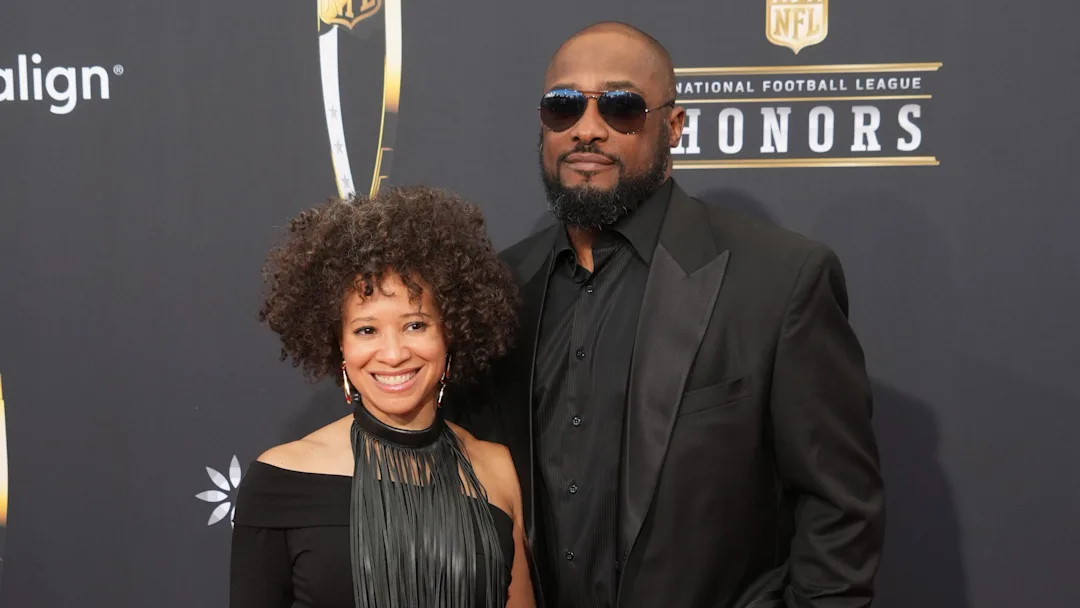
The New York Knicks just missed the easiest layup in franchise history — and they didn’t even realize they were standing wide open under the basket. With their latest head coaching hire, the Knicks passed on an opportunity to not only transform their team but to make sports history by elevating one of basketball’s most respected leaders, Dawn Staley, to the NBA sidelines.
For a franchise haunted by decades of dysfunction, front office fumbles, and on-court underachievement, bringing in Staley wasn’t just about optics or breaking barriers — it was about winning. It was about culture, accountability, and bringing a championship pedigree to a team that’s been searching for direction since the glory days of Patrick Ewing.
Instead, the Knicks played it safe — or, more accurately, played it scared.
Dawn Staley is not just a women’s basketball legend; she’s a basketball legend. Period. Her résumé speaks louder than any press conference or PR spin. A three-time Olympic gold medalist as a player, two-time gold medalist as a coach, and the architect behind one of the most dominant college programs in the nation at South Carolina, Staley has proven time and time again that she knows how to lead, how to develop talent, and how to win at the highest level.
So why not her? Why not now? Why not the Knicks?
The excuses poured in before the ink dried on the Knicks’ latest coaching contract. She’s never coached men. She’s never coached in the NBA. She doesn’t know how to manage professional egos. Sound familiar? Those are the same tired arguments critics used against Becky Hammon before she broke through and became the first woman to serve as an NBA assistant and later the first to lead a team to a pro title in the WNBA.
Truth is, leadership transcends gender. Basketball IQ isn’t limited to locker rooms based on chromosomes. Dawn Staley commands respect wherever she goes because she earns it — through preparation, authenticity, and results.
When it comes to coaching, the only thing that should matter is whether you can elevate players, foster a winning culture, and deliver under pressure. Check, check, and check — Staley’s entire career is a masterclass in exactly that.
Look at South Carolina. When Staley took over the Gamecocks, they were an afterthought in women’s college basketball. Within a few short years, she built them into a powerhouse. Multiple national championships. SEC dominance. A relentless defensive identity. Development pipelines turning raw talent into household names and professional stars.
Now imagine translating that formula to a Knicks team desperate for direction.
The Garden has been starving for a leader with Staley’s credibility — someone players would run through walls for, someone who understands both the X’s and O’s and the psychological chess match of the modern NBA. Staley brings both. She’s not afraid to hold stars accountable. She’s battle-tested in pressure-cooker environments. And, perhaps most importantly, she connects with this generation of athletes like few others can.
New York isn’t just another job. It’s the most scrutinized, magnified basketball stage in the world. The bright lights of Madison Square Garden have swallowed lesser coaches whole. But for a Philly native who honed her game in hostile gyms and built her coaching résumé by out-toughing and out-thinking the competition, pressure isn’t a problem — it’s fuel.
And yet, the Knicks hesitated. They defaulted to the familiar — to the well-worn coaching carousel of recycled names, “safe” picks, and comfortable mediocrity. Another male coach with a modest résumé, another signal that the franchise is still more interested in optics and tradition than innovation and impact.
But make no mistake: passing on Dawn Staley wasn’t just a missed opportunity for the Knicks. It was a missed opportunity for the NBA, for sports, and for the ongoing evolution of what leadership looks like in professional athletics.
Think about the message her hire would’ve sent, not just to New York but to young girls and boys watching from playgrounds and living rooms across the country. Representation matters. Breaking ceilings matters. Showing that qualifications, not gender, open doors — that matters most.
Staley has already proven that success follows her wherever she goes. She’s been a pioneer her entire career, from starring on Team USA to coaching her alma mater, Temple, to building South Carolina into a dynasty. Every step, she’s faced skeptics. Every step, she’s silenced them.
This was supposed to be the next step. The logical one. The bold one.
But the Knicks hesitated.
What makes the decision even more frustrating is the irony that New York, a city known for its grit, diversity, and audacity, couldn’t muster the courage to be audacious when it mattered most. This is the city that celebrates trailblazers. The franchise that dreams of glory but keeps getting in its own way with conservative choices and recycled approaches.
They needed fresh vision. They needed leadership with real championship DNA. They needed someone who could build trust, accountability, and a no-excuses culture.
They needed Dawn Staley.
Instead, the Knicks doubled down on the same old formula, hoping for different results — the very definition of insanity. Meanwhile, Staley remains in Columbia, still winning, still developing champions, still commanding rooms with her unshakable presence. But her ambition isn’t confined to college gyms. Make no mistake — her time will come. Some forward-thinking NBA franchise will eventually recognize what the Knicks were too afraid to: Dawn Staley belongs in the league.
When that day comes, and it will, the Knicks will once again be playing catch-up — watching another team bask in the glow of a transformative hire while they’re left wondering why history always seems to pass them by.
In sports, there are moments when legacy is forged not just by wins and losses but by vision — by daring to see beyond convention. The Knicks had that moment in their grasp. A wide-open layup. The easiest bucket they’d ever take.
And they bricked it.
Leonard Greene nailed it: the Knicks didn’t just pass on a coach. They passed on a generational opportunity. They passed on history. They passed on Dawn Staley. And the reverberations of that decision will echo louder than any Madison Square Garden crowd for years to come.



